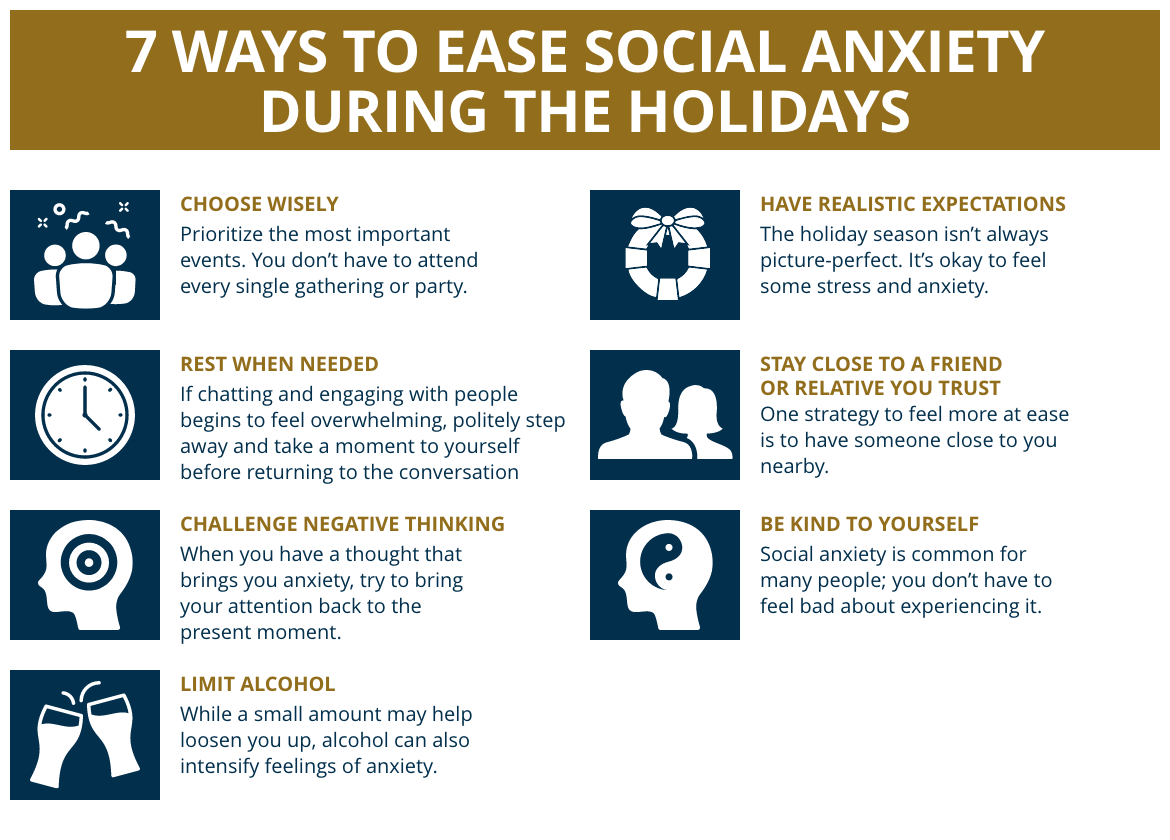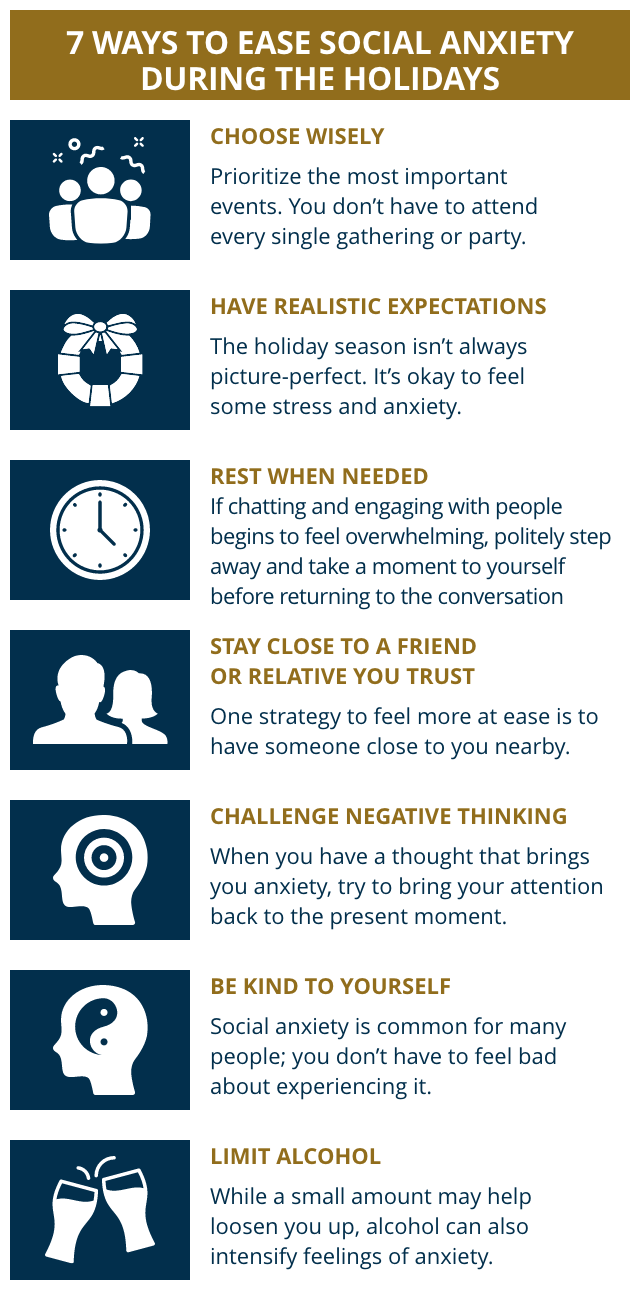5 Dec 2023
How to Have an Anxiety-Free Holiday Season
Estimated read time: 5 minutes
The holiday season brings family gatherings, parties with friends, and shared moments of joy and comfort. But the most wonderful time of the year can also be the most stressful. For many people, the pressure of attending social events can be overwhelming.
The demands and engagements of the last few weeks of the year can trigger or intensify a common condition known as social anxiety disorder (SAD), characterized by a persistent fear of social or public situations that can lead a person to avoid these activities at all costs.
The good news is that many people experience this form of anxiety and that there are multiple techniques and resources to keep a positive attitude as we navigate our busy holiday social calendars.
Those who suffer from social anxiety disorder, previously known as social phobia, can experience a deep fear of being watched and judged by others that goes beyond shyness. The symptoms of social anxiety disorder can surface without warning and be difficult to manage.
This form of anxiety can interfere with key moments in a person’s life, such as falling in love, going to college, meeting new people, making friends, starting a job, and participating in family celebrations and events. If left untreated, it can affect one’s self-esteem and intensify feelings of stress and depression.
This condition can take different forms. Generalized social anxiety disorder is characterized by a fear of any public or social situation. In non-generalized or performance-focused social anxiety disorder, people might fear a specific situation, such as a public speaking opportunity. In all its forms, social anxiety is often accompanied by symptoms such as shaking, nausea, excessive sweating, and difficulty speaking, among others. This can in turn perpetuate feelings of fear, creating a vicious cycle that can be difficult to break.
Many people have social anxiety, and there are multiple options for treatment. The condition is associated with specific sociodemographic characteristics: It occurs more frequently in young people than in older adults, is typically triggered in late childhood or during adolescence, and rarely develops after age 25. Social anxiety disorder is more common in women, although a greater proportion of men seek help for this condition.
Researchers believe that cultural norms are an important factor in how social anxiety is perceived. Most patients are not aware of their condition and only consult their doctor after many years of experiencing anxiety.
Effective Strategies for Overcoming Social Anxiety
To treat social anxiety, a crucial first step is identifying and acknowledging the problem. On their own or with the help of someone close to them, a person might recognize that their feelings of fear surrounding social situations have intensified or become difficult to manage.
Cognitive-behavioral therapy (CBT) is the first-line treatment for social anxiety disorder. This approach helps reduce anxiety by challenging beliefs or behaviors that trigger the disorder. CBT therapy also addresses the underlying reasons behind a person’s feelings of inadequacy and boosts self-esteem. Talking with peers in group sessions and developing social abilities, such as expressing oneself, resolving interpersonal conflicts, and making lasting friendships are among the strategies to help ease and manage social anxiety.
Strengthening social bonds with the people we feel comfortable with is also important. These relationships can help us achieve healthier and more gratifying social experiences.
Knowing the triggers of social anxiety and how to prevent or minimize it can make a huge difference in one’s quality of life, and in the interactions that make life — and the holiday season — more fulfilling.
Remember, always consult with your physician or health care professional to determine the best options for your body and health and to answer any questions you may have regarding any medical matter.




